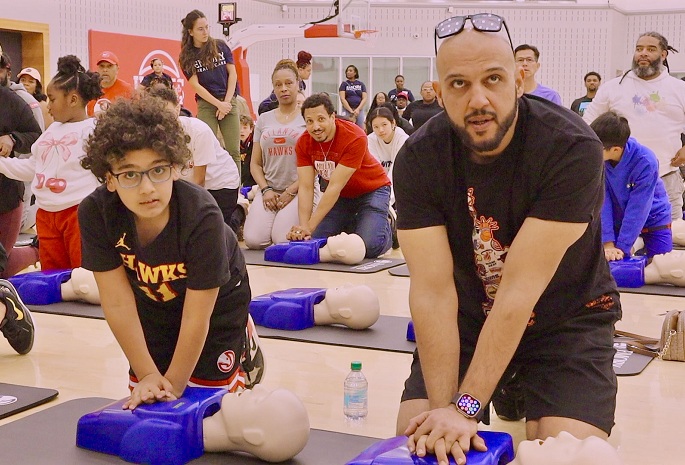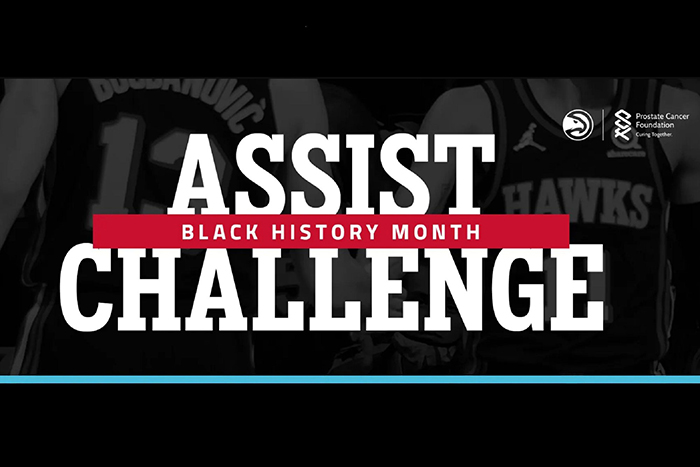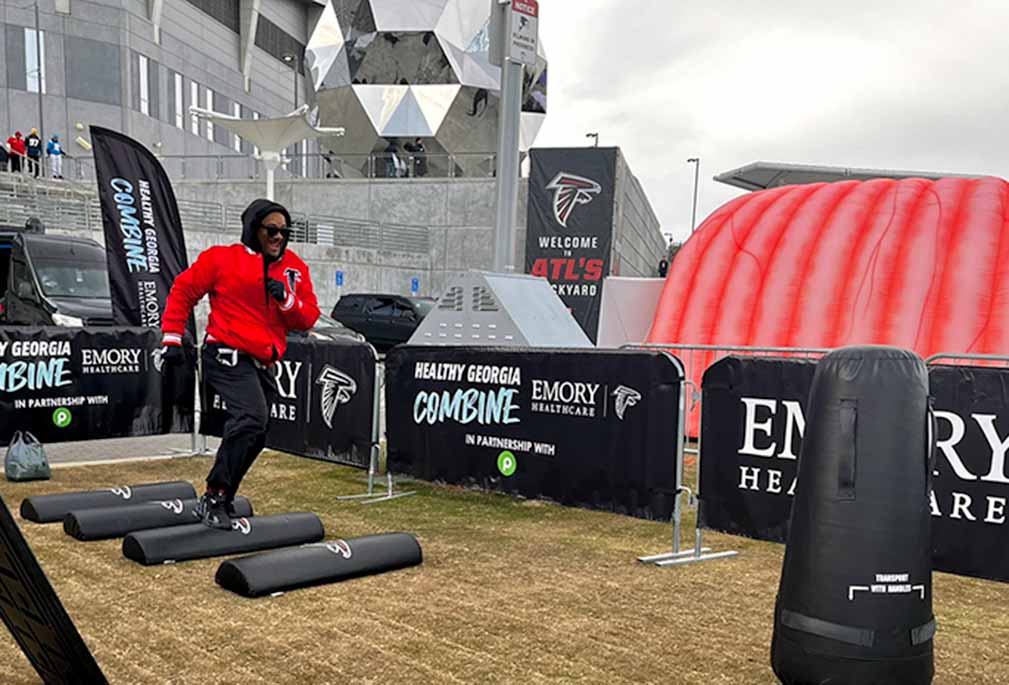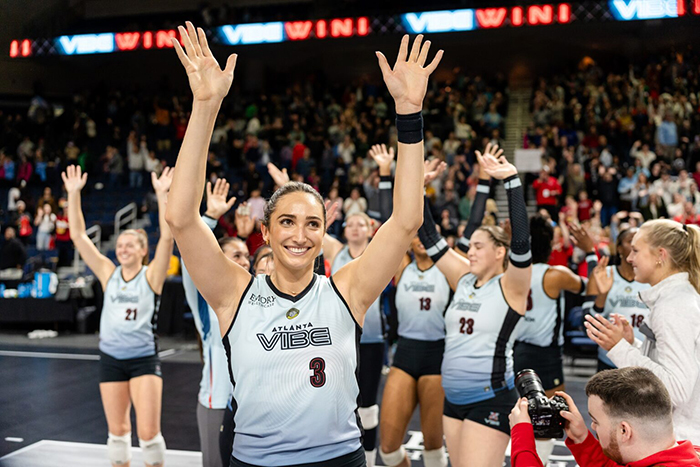If you see someone collapse from a cardiac event, would you know what to do?
Thanks to training with Emory Healthcare and the Atlanta Hawks last weekend, now more than 150 adults and young people are prepared to jump into action. At the Emory Healthcare Courts, where Atlanta Hawks players practice at the Emory Sports Medicine Complex, these Atlanta community members attended a hands-only CPR and Automated External Defibrillator (AED) training event.
As the official team healthcare provider for the Hawks, Emory Healthcare care teams are courtside to support players and navigate injuries. Community trainings like this one remind members of the community that they, too, play a role in supporting the health of their family, neighbors and fellow community members.
Destin Hill, MD, sports medicine physician for Emory Healthcare and a team physician for the Atlanta Falcons, opened the session by reminding participants that around 350,000 Americans experience sudden cardiac arrest each year—and emphasized the importance of fast action.
In addition to learning lifesaving skills, the group enjoyed a tour of the Hawks’ practice facility.



 Kyle Korver, former NBA All-Star and current Atlanta Hawks assistant general manager, attended the event and applauded the continued partnership between Emory Healthcare and the Hawks—and their efforts to reach the wider community.
Kyle Korver, former NBA All-Star and current Atlanta Hawks assistant general manager, attended the event and applauded the continued partnership between Emory Healthcare and the Hawks—and their efforts to reach the wider community.

